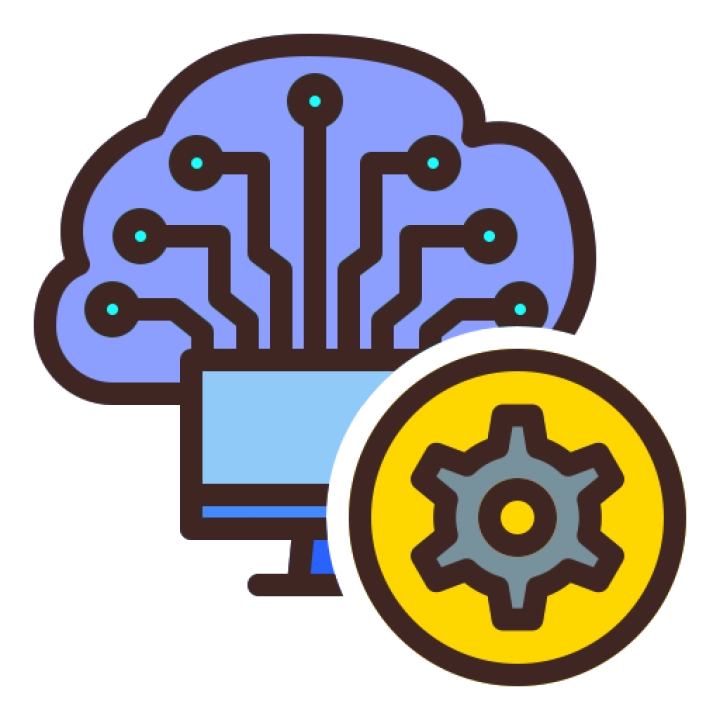College: Engineering
This multidisciplinary major focuses on the development and application of artificial intelligence and data engineering technologies to solve complex problems and drive innovation. Students explore key areas such as machine learning, data mining, big data technologies, natural language processing, computer vision, and ethical considerations in AI. The program emphasizes practical skills, theoretical knowledge, and an understanding of emerging technologies in AI and data engineering.
Learning Objectives:
- Understand the fundamentals of AI and data engineering.
- Develop skills in machine learning, data mining, and big data technologies.
- Learn natural language processing and computer vision techniques.
- Explore ethical considerations and regulatory frameworks in AI.
- Analyze challenges and opportunities in AI and data engineering.
- Develop teamwork, communication, and problem-solving skills for AI projects.
Main Curriculum:
- Introduction to AI and Data Engineering
- Overview of AI and data engineering, fundamental concepts, and historical context.
- Fundamentals of AI applications and industry trends.
- Machine Learning
- Principles of machine learning, including supervised, unsupervised, and reinforcement learning.
- Techniques for designing, training, and evaluating machine learning models.
- Data Mining
- Fundamentals of data mining, including data preprocessing, feature selection, and pattern recognition.
- Techniques for extracting insights and knowledge from large datasets.
- Big Data Technologies
- Principles of big data technologies, including distributed computing, data storage, and processing frameworks.
- Techniques for managing and analyzing big data using tools such as Hadoop, Spark, and NoSQL databases.
- Natural Language Processing (NLP)
- Fundamentals of NLP, including text processing, sentiment analysis, and machine translation.
- Techniques for developing NLP applications and integrating them into AI systems.
- Computer Vision
- Principles of computer vision, including image processing, object detection, and facial recognition.
- Techniques for developing computer vision applications and integrating them into AI systems.
- Ethical Considerations in AI
- Principles of ethical considerations in AI, including bias, fairness, transparency, and accountability.
- Techniques for addressing ethical challenges and ensuring responsible AI development.
- Practical Training in AI and Data Engineering
- Real-world AI and data engineering experiences, including internships, observations, and hands-on projects in industry settings.
- Techniques for applying acquired skills in practical AI and data engineering settings.
- Graduation Project in AI and Data Engineering
- A comprehensive project to apply skills acquired in machine learning, data mining, or big data technologies.
- Techniques for presenting an innovative and polished project in AI and data engineering.
Assessment Methods:
Evaluations of machine learning models, data mining projects, big data analytics, NLP applications, computer vision projects, ethical considerations papers, internship reports, graduation projects, group projects, and internships.
Recommended Textbooks:
- "Artificial Intelligence: A Modern Approach" by Stuart Russell and Peter Norvig.
- "Pattern Recognition and Machine Learning" by Christopher M. Bishop.
- "Data Mining: Concepts and Techniques" by Jiawei Han, Micheline Kamber, and Jian Pei.
- "Big Data: Principles and Best Practices of Scalable Real-Time Data Systems" by Nathan Marz and James Warren.
- "Speech and Language Processing" by Daniel Jurafsky and James H. Martin.
- "Computer Vision: Algorithms and Applications" by Richard Szeliski.
- "Ethics of Artificial Intelligence" by various authors.
Prerequisites:
Basic knowledge of computer science, mathematics, and statistics. Suitable for students interested in AI, data engineering, machine learning, and related fields.
Duration of the Program:
Typically 4 years to earn a bachelor's degree, including coursework, projects, practical training, and internships.
Certification:
Graduates can obtain a degree in AI and Data Engineering and pursue professional certifications in AI, data engineering, machine learning, or related fields.
Target Audience:
Aspiring AI specialists, data engineers, machine learning engineers, and professionals seeking specialization in AI and data engineering. This major provides students with the practical, theoretical, and innovative skills necessary to excel in AI and data engineering, supporting careers in AI development, data engineering, machine learning, and related fields.

